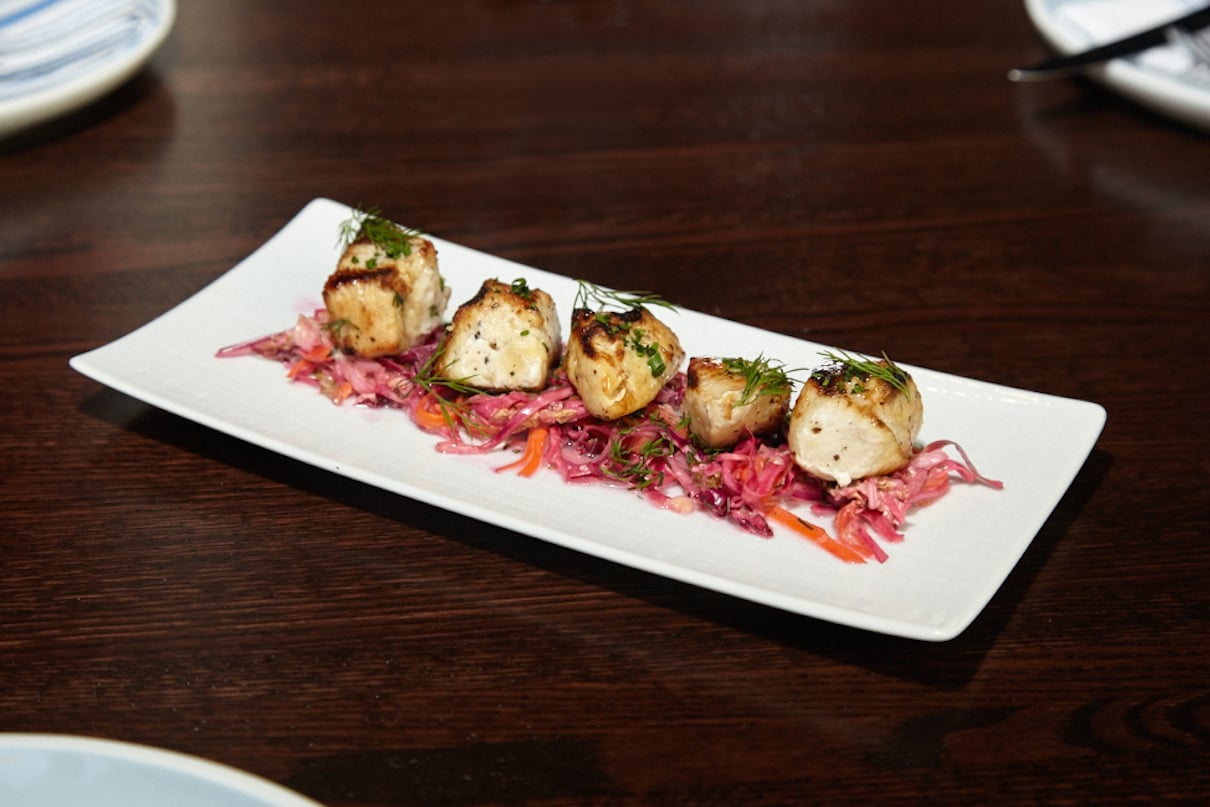If you’ve eaten at Bethesda’s Passage to India, you might recognize Ali al-Himeri, the straight-backed waiter who strides through the dining room with a rare economy of movement.
Chef/owner Sudhir Seth praises his “honesty, dignity, and loyalty.” But it’s al-Himeri’s “sense of discipline”—unmatched, says Seth, in his three decades in the business—that is most impressive. It’s revealed in the stillness with which he moves, the precision with which he places each glass, fork, knife, and spoon.
That discipline is not the product of a few weeks’ training. It has its roots in a story—a story of suffering and loss and, finally, redemption.
my family used to own a restaurant in Babylon in Iraq. I am one of seven children and the laziest. I didn’t work there; I would just go by, ask for some money, and be on my way. Everything was easy. Then . . . the army.
“In Iraq, there is no choice. You serve. If you say no, you go to jail. When I was leaving high school, I didn’t have a good degree. I could choose technical school or join the army. I went to technical school, thinking I would kill time for a few years. I spent three years at a technical institute. I studied accounting and hated it. But I hated the idea of the army even more.
“When I left, I even tried to avoid enlisting by applying to a police academy. They didn’t take me. I joined the army right as the war between Iraq and Iran was ending. Because of my studies, I ended up in the Republican Guard, the elite security for Saddam.
“I was stationed in Basra during the Gulf War, during the American invasion. Everything—chaos. It was so quick. The Iraqi army began pulling out of Kuwait. Then the uprising started. Civilians got control of arms; they became soldiers. And now soldiers were fleeing.
“I had to go home to Babylon just to tell my family I’m still alive. I had two choices: go back to the army or stay at home and have the government take me off to death.
“I ran.”
i went with five friends, friends from the neighborhood. We left to Samawa, south of Najaf. One day there, I see an American Army flier: go to the american army and save yourself.
“The American Army was on the border between Iraq and Saudi Arabia. I go, I say, ‘I am here, take me.’
“There were 39,000 of us refugees—civilians and soldiers. The soldiers they send to the camp at al-Artawea. I was there from May 1991 to December 1992. The same thing every day: eat, sleep, wake up, eat, sleep, wake up. Then they transfer me to Rafha. The same thing again: eat, sleep, wake up, eat, sleep, wake up.
“I was in Rafha six years. For six years, I was mentally sick. There is no life. You don’t know when you will go home. I would see myself in the center of a giant spinning wheel. Everything else moving, developing. All of Babylon, all of Baghdad, all of the world changing. And I’m standing, doing nothing. That’s what would make my mind stop.
“I would read, mostly about religion. I didn’t know anything about Christians or Jewish people. It taught me that there are three major religions, and they all believe in God.
“I would read one sentence, then repeat it. Then repeat it again. Something to make me alive, to give me hope. Then we would hear about the delegations from the US, from Australia, Canada, Europe, offering asylum.
“When I was in Iraq, America was for me—like all Iraqi people—the devil. The Americans were described as coming to destroy us. But they come to help me. They ask me, ‘What do you think if you find out your boss is Jewish? What do you think if you go and see a completely different culture?’ I tell them, ‘It’s no difference between Christians, Muslims, and Jews. If there’s a God, He will decide. My job here is just to live.’
“I came to America in ’97, first New York, then Washington. I went to work for Mr. Seth in ’99 at Heritage India, and then Passage to India.
“When we get busy at the restaurant, nothing goes around in my head. I like to work, I don’t like to think. When it’s quiet, things come to me. I see myself when I used to live in a tent. I see myself carrying two gallons of water a great distance for my fellow refugees. A million things, they come and go—the smell of my hometown, the people. Mostly I think about my family. I try to imagine the baby that was born into my family when I left. And now the baby has a baby. My life, now, is so different. My old life, it’s like a lifetime ago.
“I believe God has put me through this to teach me. I didn’t know anything about my father’s restaurant. Now I work in a restaurant. We had a Christian neighbor, and I knew nothing about Christianity.
“A secret hand helped me, and that is God.”
















